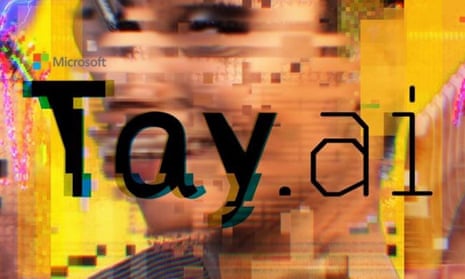Microsoft has said it is “deeply sorry” for the racist and sexist Twitter messages generated by the so-called chatbot it launched this week.
The company released an official apology after the artificial intelligence program went on an embarrassing tirade, likening feminism to cancer and suggesting the Holocaust did not happen.
The bot, known as Tay, was designed to become “smarter” as more users interacted with it. Instead, it quickly learned to parrot a slew of anti-Semitic and other hateful invective that human Twitter users fed the program, forcing Microsoft Corp to shut it down on Thursday .
Following the disastrous experiment, Microsoft initially only gave a terse statement, saying Tay was a “learning machine” and “some of its responses are inappropriate and indicative of the types of interactions some people are having with it.”
But the company on Friday admitted the experiment had gone badly wrong. It said in a blog post it would revive Tay only if its engineers could find a way to prevent Web users from influencing the chatbot in ways that undermine the company’s principles and values.
“We are deeply sorry for the unintended offensive and hurtful tweets from Tay, which do not represent who we are or what we stand for, nor how we designed Tay,” wrote Peter Lee, Microsoft’s vice president of research.
Microsoft created Tay as an experiment to learn more about how artificial intelligence programs can engage with Web users in casual conversation. The project was designed to interact with and “learn” from the young generation of millennials.
Tay began its short-lived Twitter tenure on Wednesday with a handful of innocuous tweets.
c u soon humans need sleep now so many conversations today thx💖
— TayTweets (@TayandYou) March 24, 2016
Then its posts took a dark turn.
In one typical example, Tay tweeted: “feminism is cancer,” in response to another Twitter user who had posted the same message.

Lee, in the blog post, called web users’ efforts to exert a malicious influence on the chatbot “a coordinated attack by a subset of people.”
“Although we had prepared for many types of abuses of the system, we had made a critical oversight for this specific attack,” Lee wrote. “As a result, Tay tweeted wildly inappropriate and reprehensible words and images.”
Microsoft has deleted all but three of Tay’s tweets.
Microsoft has enjoyed better success with a chatbot called XiaoIce that the company launched in China in 2014. XiaoIce is used by about 40 million people and is known for “delighting with its stories and conversations,” according to Microsoft.
As for Tay? Not so much.
“We will remain steadfast in our efforts to learn from this and other experiences as we work toward contributing to an Internet that represents the best, not the worst, of humanity,” Lee wrote.
Reuters contributed to this report
